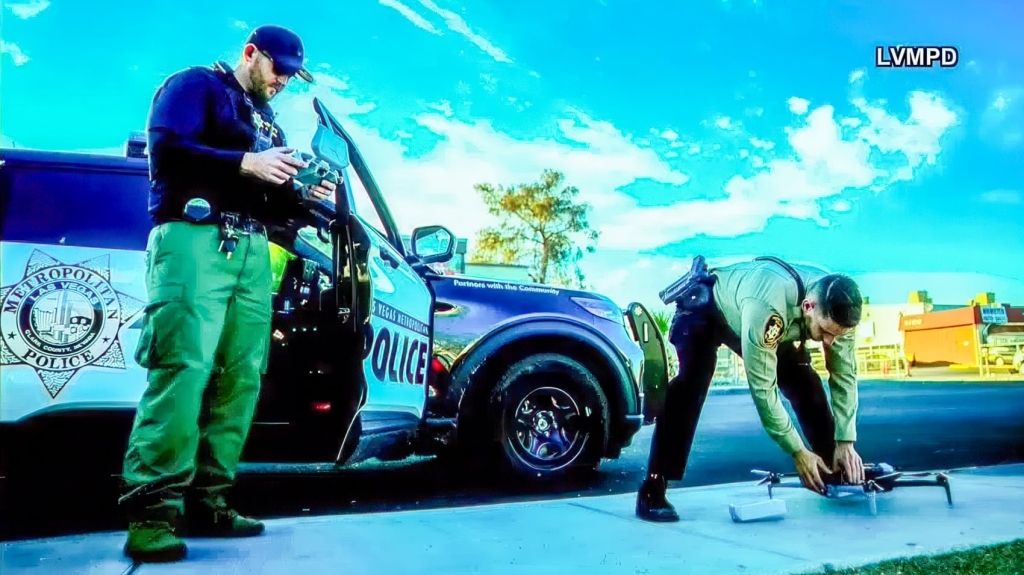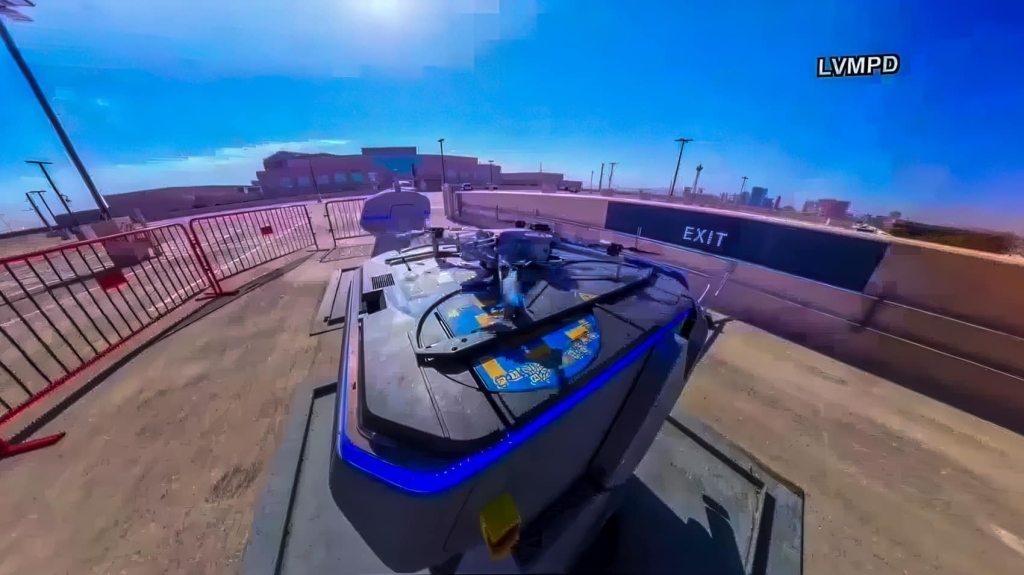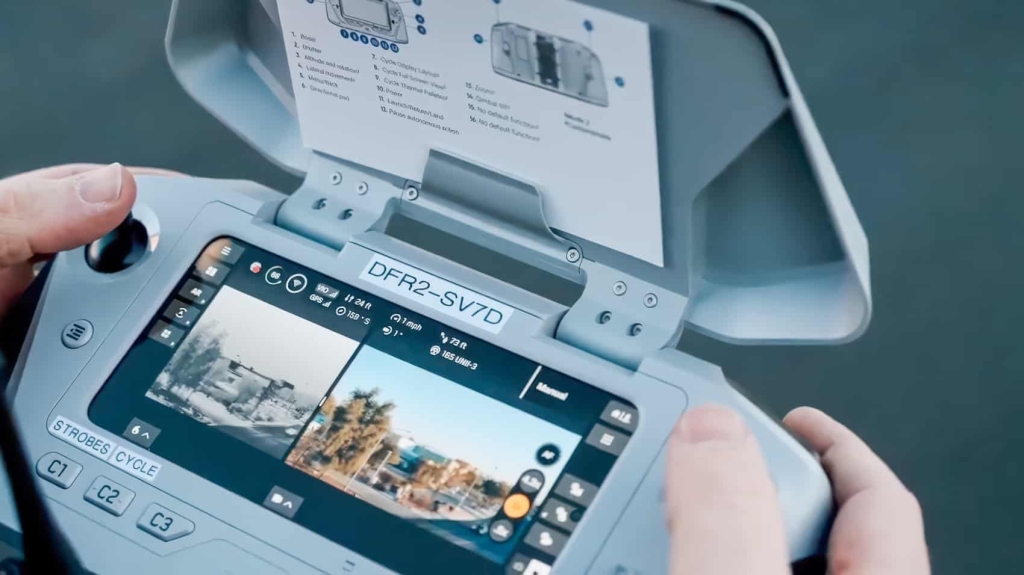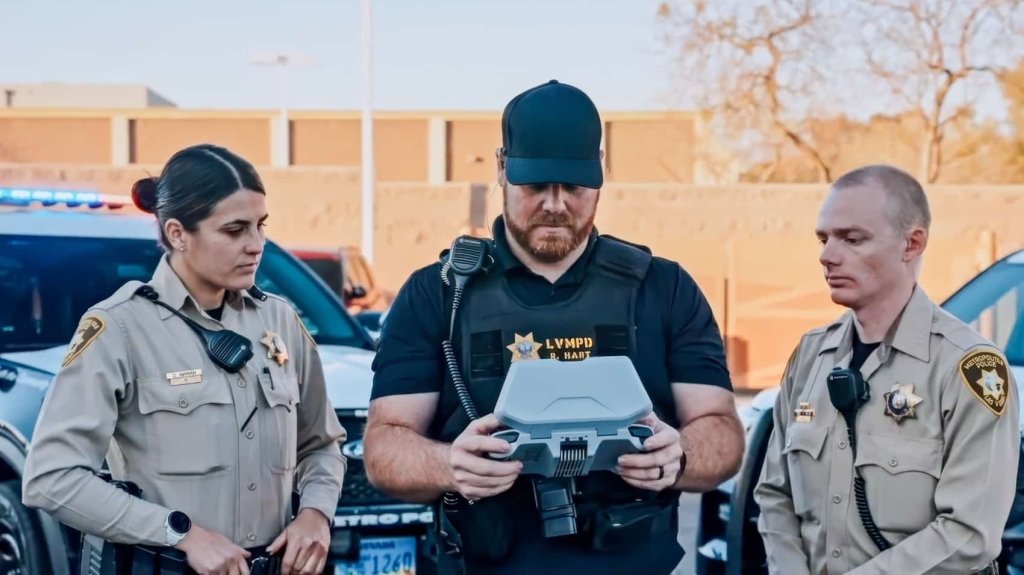Las Vegas Police Are Launching Drones From Rooftops, And The ACLU Is Watching


Photo credit: LVMPD
“has-text-align-left”>Amazon Deals: SkyRover X1 15% off now $644.30, and DJI Mic Mini 36% off, now $109!
The Las Vegas Metropolitan Police Department (LVMPD) is taking its “drone as a first responder” program to a whole new level. In a massive expansion of their Project Blue Sky, the department is installing a network of 13 “Skyports” across the valley, allowing them to launch drones from rooftops to respond to violent calls in seconds. News 3LV reported and told us.


Photo credit: LVMPD
It’s a bold, futuristic step towards a new era of urban policing. But the program’s rapid expansion is also raising serious alarms from civil liberties advocates, who are concerned about the potential for warrantless surveillance and the erosion of privacy.
“wp-block-heading”>“Gateways to the Sky”
The new phase of Project Blue Sky is ambitious. The LVMPD is setting up 13 locations, including police stations, fire stations, and other purpose-built structures, each equipped with three drone docking stations. From these “gateways to the sky,” as Assistant Sheriff Dori Koren calls them, drones can be launched remotely from a central hub to provide an immediate eye in the sky over an active incident.


Photo credit: LVMPD
This is made possible by a special Beyond Visual Line of Sight (BVLOS) authorization from the FAA, which allows certified pilots to operate the drones without having to physically see them. It’s a huge leap in efficiency, allowing the department to cover the entire Las Vegas valley with a rapid-response aerial asset. The program already has an impressive track record. In its initial phases, Project Blue Sky has flown over 1,100 missions, helping to locate 169 suspects and contributing to 386 arrests.


Photo credit: LVMPD
“wp-block-heading”>The ACLU Sounds the Alarm
Not everyone is excited about this high-tech expansion. The ACLU of Nevada has raised serious concerns about the program’s potential to violate privacy rights. Jacob Valentine of the ACLU worries that as these drones fly to and from an incident, they could be conducting warrantless searches of the neighborhoods they pass over.
He argues that a drone, flying much lower than a traditional police helicopter, can capture a far more detailed and intrusive view of a person’s private property. The ACLU is demanding more transparency about the program’s camera policies, data retention, and potential for misuse, especially in already over-policed communities.
The LVMPD has countered these concerns, stating that all flights are tied to active 911 calls, not for random patrols. They also note that the drone’s camera is programmed to point at the horizon during transit and only focuses on the scene upon arrival. Assistant Sheriff Koren insists that a system of logs and audits is in place to ensure accountability.
“wp-block-heading”>The Tech and the Tension
The drones being used is the Skydio X10. These are powerful machines with long flight times and advanced thermal and zoom cameras, purpose-built for the demands of public safety. The tension highlighted by this program is one that the entire drone industry is grappling with. On one hand, the technology offers undeniable benefits for public safety. A drone can arrive at a scene faster than a patrol car, give officers a safe, overhead view of a dangerous situation, and help de-escalate conflicts without putting lives at risk. On the other hand, the potential for this same technology to be used for mass surveillance is a legitimate and terrifying concern.
“wp-block-heading”>DroneXL’s Take
The debate unfolding in Las Vegas is one of the most important conversations happening in the drone world today. It is the perfect case study of the immense promise of our technology clashing directly with our fundamental rights to privacy.
“Real talk,” the LVMPD’s program is, from a purely technical and tactical standpoint, brilliant. It’s a smart, efficient, and effective use of drone technology to respond to violent crime. The impressive arrest statistics from their initial 1,100 missions prove that the concept works and is likely making both officers and the public safer.
However, the concerns raised by the ACLU cannot be dismissed. The idea of a network of autonomous police drones capable of launching from any rooftop in a city is a scene straight out of a dystopian sci-fi movie for many people. The potential for mission creep—where a tool designed for emergencies slowly becomes a tool for general surveillance—is very real.
The LVMPD’s commitment to transparency and accountability, with their audit logs and strict camera policies, is a great first step. But they have a massive hill to climb to win the public’s trust. This is a conversation that requires more than just press releases; it requires open dialogue, clear and enforceable policies, and genuine community oversight.
This is the future, and it’s arriving faster than we think. Finding the right balance between the incredible power of this technology and the privacy rights of the citizens it’s meant to protect is the great challenge of our time.
Photo credit: LVMPD

Comments are closed.